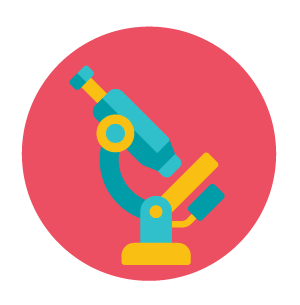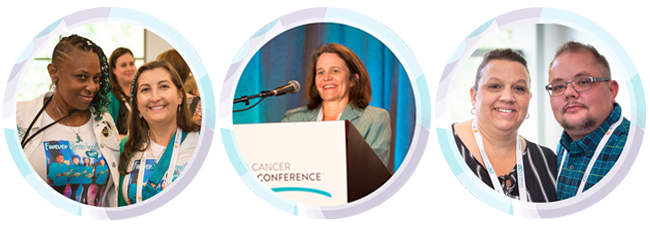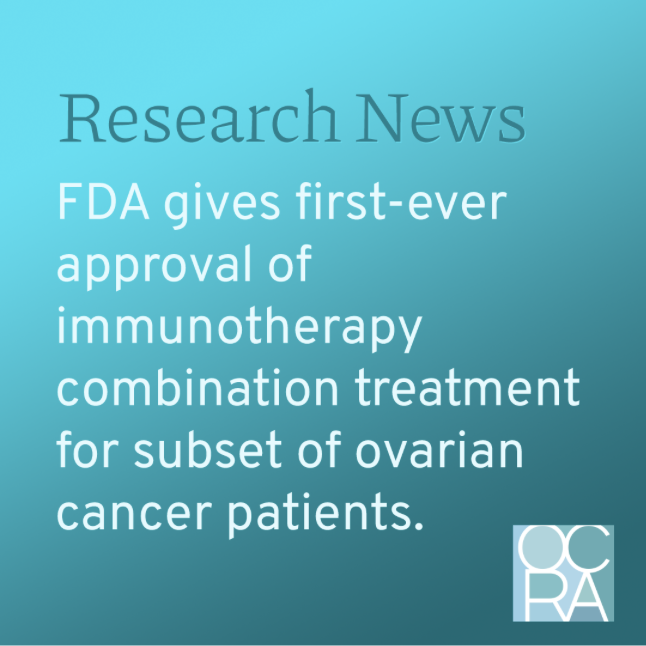Sultry summer days can make anyone feel lazy and daydream of faraway places. But at OCRA, we’re working as hard as ever to fulfill our dream of a day when no one need fear an ovarian cancer diagnosis. Check out all that’s happening and discover ways that you can get involved.
RESEARCH

- Many of us have heard of BRCA mutations. But did you know there are other mutations that can cause something called Lynch Syndrome, which can lead to various cancers, ovarian cancer being among them?
- Meet Dr. David Chapel, an OCRA grantee who is laying new groundwork in better understanding the origins of high grade serous carcinoma. He and his team are studying endometrial tissues to discover mutations that may be taking place on the cellular level.
- A long-running study from Dana-Farber Cancer Institute, co-funded by OCRA, has discovered that the antibiotic novobiocin is capable of targeting and killing tumor cells in laboratory cell lines and tumor models with BRCA1 or BRCA2 genetic mutations. Read on to discover how it has been found to be effective even in tumors that have become resistant to PARP inhibitors.
- Another study, this one published in the American Journal of Obstetrics & Gynecology, provides new insight into previously established research that oral contraceptive use is connected to lower ovarian cancer risk in the general population, by more closely examining the link among BRCA1 and BRCA2 mutation carriers.

ADVOCACY

- OCRA applauds the action taken on Tuesday by Congresswoman Rosa DeLauro to reauthorize and expand Johanna’s Law. The bill seeks to increase funding for another three years at $15 million. This represents a $5 million increase over the fiscal year 2021 funding level appropriated by Congress. This additional funding supports new provisions under the legislation, including initiatives to raise awareness among specific higher-risk populations of women. If this bill is passed, it will enable CDC to meet evolving public health needs when it comes to gynecologic cancers. Reach out to your Representative today and urge them to cosponsor this important piece of legislation!
- Good news! The House Committee on Appropriations has included our request for additional funding for the Ovarian Cancer Research Program in their proposed FY2022 Department of Defense funding bill. The $10 million increase could make a big impact on the translational cancer research that the program is conducting and help speed progress. The proposed increase comes after a bipartisan group of 125 House members signed a letter urging the Committee to address the important need. The Committee will soon mark-up the bill which would then go to the full House for passage, so while there is still much work to be done, this is an exciting development!
- Last week, the bi-partisan Cancer Drug Parity Act was re-introduced in the U.S. House of Representatives. The Cancer Drug Parity Act seeks to reduce the financial burden on patients by making cost-sharing for oral anticancer drugs equal to other therapies, regardless of their method of administration. With approximately one-third of anticancer medications being produced in pill form, the passage of this legislation could save hundreds of thousands of cancer patients upwards of $5,000-$10,000 a month. A similar version of the legislation was introduced last Congress and earned more than 170 cosponsors.

PATIENT SUPPORT & PROGRAMS

- We know the value of our Woman to Woman program. But it was heartening to read a study conducted by researchers at the University of Kansas School of Medicine that touts the benefit of giving and receiving peer support in the face of a gynecologic cancer diagnosis.
- Speaking of Woman to Woman, OCRA’s national peer mentoring program just made its 101st match! While the first local W2W site run by a healthcare institution was founded in 2004 (and has since grown to 43 sites around the country), the national program run through OCRA only began in November 2019. In that short time, we have trained 62 mentors and made more than 100 matches. Together, with the hundreds of matches made by W2W sites around the U.S., we are lessening the isolation felt by those dealing with ovarian and other gynecologic cancers.
- Last month we shared the launch of our new Rare Aware campaign aimed to shine a spotlight on the thousands who are dealing with a rare form of ovarian cancer, and build greater awareness and community. Meet Angela Marie, a young woman with a mixed yolk sac tumor and adult granulosa cell tumor who shares what it’s like to have a rare form of an already rare disease.
- Speaking of sharing one’s truth and experiences in order to inspire others, check out the Ovarian Cancer Survivor Stories page, where all of the feature profiles of survivors in our community can be found in one place.
- And speaking of inspiring others, you can read two new installments of our Inspired Advice series on dealing with feelings of isolation, and helpful changes to diet and exercise routines. These tips and reflections come from members of the OCRA Inspire online community.

EVENTS
- Registration is open for OCRA’s Uniting for Hope Ovarian Cancer National Conference! This virtual event offers three days filled with the latest in treatment and discoveries, hope and community, and breakout discussions on a wide range of topics. There are only two weeks left to nab early bird pricing, so register now. (We don’t want to give anything away, but some might even describe this year’s programming as magical.)
- Summer stretch! On July 27th we are premiering our OCRA Heroes: LYMBR for a Cure, a 45-minute LYMBR personalized stretching class via Zoom. No matter your fitness level, no matter where you live, you can take part as we work out our muscles together.
- Summer is gearing up to be very active in 2021 for Ovarian Cycle, with Orlando, Tampa, Atlanta and Jackson already open for registration and many more to open in the coming weeks.
- Taking a peek backwards, we’re excited to share that three new Ovarian Cycle rides premiered on June 12th in Massapequa NY; St, Louis, MO; and Temple, TX, raising a combined total of over $45K!

WAYS TO GIVE

- A massive shout out to two OCRA Heroes who are, literally, going the extra mile to raise critical funds for life-saving research. Meet Chris Turner from Denver, CO and Tanja Murray from La Grange Park, IL. Both individuals are taking their fundraising prowess to the extreme – one in a 50-miler race and the other in a triathlon. Learn more about them, their efforts, and the motivation behind their heroics.
- OCRA welcomes distributions from IRA accounts and Donor-Advised Funds:
- IRA Distributions. To make a gift from your IRA account, contact your IRA administrator and instruct them to make a distribution directly to OCRA, PO Box 32141 New York, NY 10087-2141 (Tax ID 13-3806788). Please ask your administrator to include your name and address when they transfer the funds so we can provide you with an acknowledgement for your records. For donors aged 70 ½ or older who are required to take minimum distributions from their IRA accounts, you can avoid paying taxes on these funds by donating them to OCRA.
- Donor-Advised Funds. A donor-advised fund (DAF) is a charitable giving vehicle administered by a qualified public charity. Think of it like a philanthropic savings account. After you establish a DAF, you can make contributions of cash, securities, or other assets (including bitcoin and other cryptocurrencies) to the fund as often as you wish and receive an immediate charitable tax deduction. The funds are then invested for tax-free growth, and when you are ready, you can recommend a grant to OCRA.



